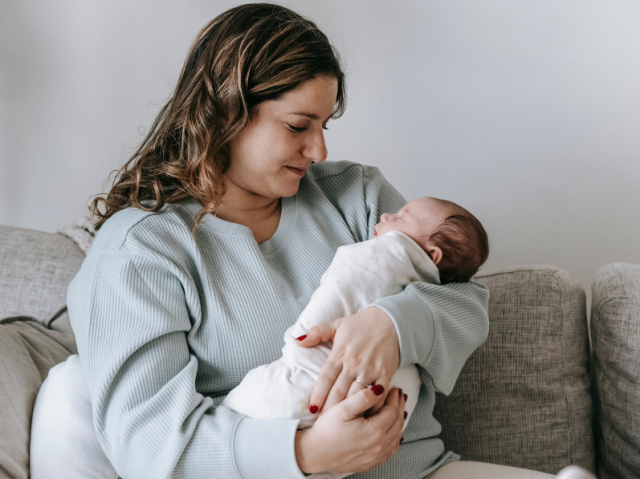
Research explores barriers to breastfeeding in Gypsy and Traveller communities
6 December
A first-time researcher from Cwm Taf Morgannwg University Health Board has identified some of the barriers preventing Gypsy and Traveller women from breastfeeding.
Across the UK, around 80% of mothers initiate breastfeeding, compared to 63% in Wales, but only 3% of Gypsy and Traveller mothers.
Health Visitor Sarah Parry has worked with mothers and babies in the Gypsy and Traveller community for almost 15 years. Only one baby of 28 born during that time had received any breastmilk. Sarah said,
I was very intrigued as to why that might be and whether there might be anything health professionals could do to support more mothers in these communities to initiate breastfeeding.”
The research project involved Sarah conducting a number of interviews with Gypsy and Traveller mothers, discussing their feelings and concerns around breastfeeding. A number of common themes began to emerge, particularly the perception of breastfeeding as “immodest”.
“Many of the women told me it was shameful and not something that should be done in front of other people. In these close-knit communities, there was fear they would be asked to sit apart from others while breastfeeding, or have other children moved away from them, especially boys.”
This perception led to a number of other barriers, such as lack of skills to breastfeed and a lack of awareness of the potential health benefits for their babies. This could be compounded by health professionals, who presumed mothers from these backgrounds prefer formula feeding, and therefore do not discuss breastfeeding with them.
However, there did seem to be an appetite for changing these attitudes.
“My research also explored facilitators to breastfeeding. For example, the mothers I spoke to were highly motivated by the health and wellbeing of their children, so greater emphasis on the health benefits of breastfeeding could make a difference. Many of them believed that this attitude was old-fashioned and should change, and were interested in expressing breastmilk, especially if this could be done in a discreet way. For example, one mother had used a breast pump that could be concealed within her bra.”
Sarah hopes greater understanding of these barriers and facilitators may enable health professionals to develop a breastfeeding promotion initiative targeting mothers in these communities, using Gypsy and Traveller women themselves as role models. Her research could also impact policy: Gypsy and Traveller sites could be designed with private breastfeeding spaces, or provision could be made for access to breast pumps.
“This was my first experience of completing research and it has had a profound impact on me. I now recognise the barriers and facilitators to breastfeeding and the reason for low rates of breastfeeding in the Gypsy and Traveller communities. I recognise the courage each woman required to discuss a topic they were apprehensive about. Since completing the study, further women asked if they could participate, so it may open the doors for further research in the future.”
How to contact CTMUHB’s R&D Team:
CTM's Research and Development Office is based at the Royal Glamorgan Hospital.
If you wish to speak with a member of the R&D team, you can contact them on:
Tel: 01443 443421 or Email: CwmTaf.R&D@wales.nhs.uk